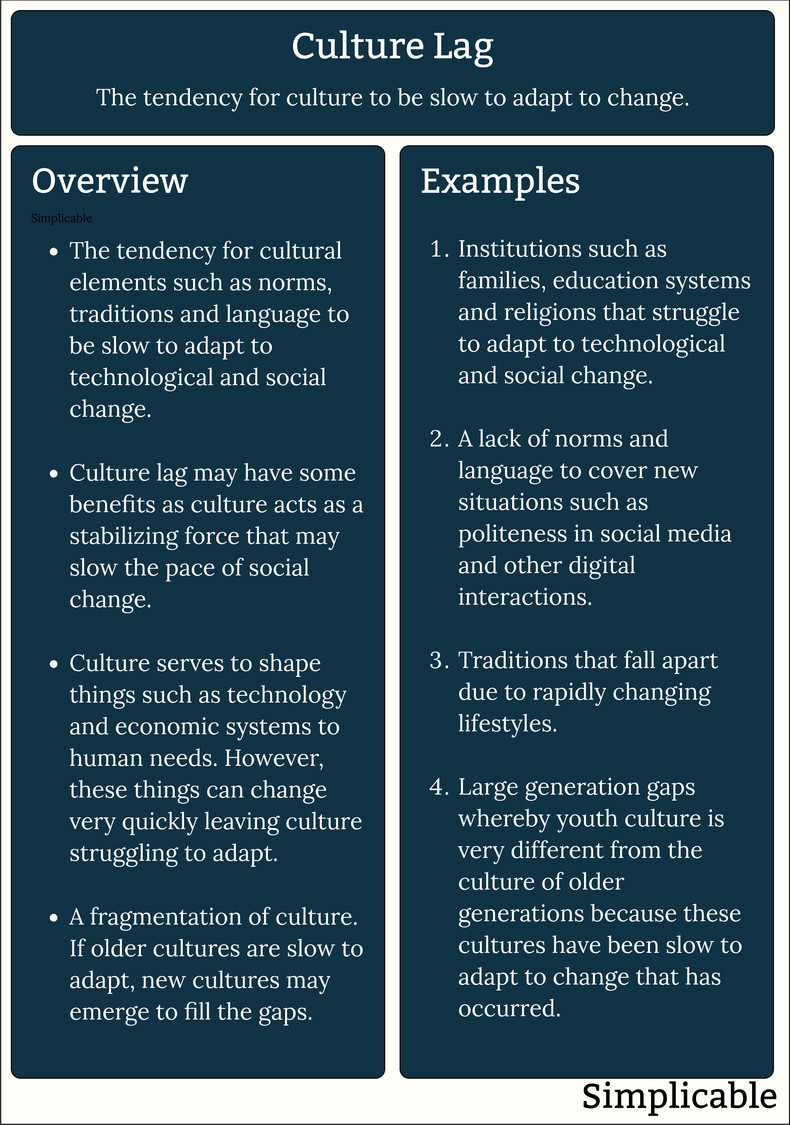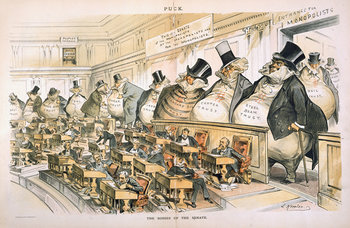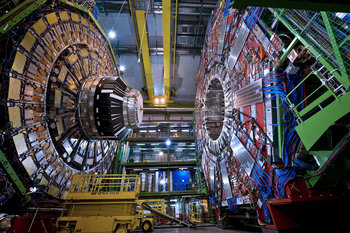
Quality of Life
A technology may negatively impact the happiness, prosperity and health of a society. As a hypothetical example, a city where inexpensive drones begin to fill the skies causing issues such as noise, a lack of privacy and disruptions to local ecosystems. A society may simply accept this as an inevitable consequence of "progress" or it may eventually respond with laws or norms that improve quality of life.Risk Management
In many cases, a technology introduces a large number of new risks and society only manages these risks after incurring large scale damages. For example, the introduction of motor vehicles in the early 20th century led to a high accident rate that persisted for many decades until societies finally started introducing basic risk management steps such as traffic lights and drinking & driving laws.Tradition
Technology often disrupts a tradition that people may discontinue without consideration of what's being lost. For example, a culture where families commonly consumed television together as a shared experience that simply drops this practice due to the proliferation of personal electronic devices such as tablet computers.Creeping Normality
Creeping normality is when individuals are willing to accept a negative change that occurs slowly that they would refuse to accept if it happened quickly. For example, a society that accepts constant monitoring by cameras and other sensors in public spaces and the use of this data by various entities because this change occurred slowly over many decades.Ethics & Values
Technology creates new problems of ethics. For example, the popularity of DNA testing services that creates a massive amount of data about the health and background of a large number of individuals. This includes data about people who never took a DNA test that can be inferred by tests taken by relatives. The question of how this data can be used and by whom can produce ethical dilemmas that may go unresolved for many decades.Rights and Freedoms
Technology can create systems of control that allow governments, organizations and individuals to infringe on traditional rights and freedoms. For example, privacy is the right to live aspects of your life unobserved and unrecorded. This can easily be infringed upon by information technology such as payment systems that record everything you buy and everything you do that requires payment. In theory, society can respond with laws, restrictions and controls to prevent the misuse of such data. In practice, this response is slow or nonexistent.Escalation of Commitment
Escalation of commitment is the illogical act of continuing a failing strategy because you have already invested in it. For example, a nation that experiences a massive nuclear incident that is enormously costly resulting in large public debts. The nation doesn't learn from this experience but instead continues with very large investments to bring other aging nuclear facilities back on line despite clear risks of further incidents. This can occur despite the availability of sustainable, cheaper, more resilient, lower risk and equally scalable energy sources.Outside Context Problem
An outside context problem is a large scale problem that is beyond the imagination until it suddenly happens. Unfortunately, culture lag can cause a society to fail to react to such problems. The classic example is an isolated island nation that suddenly encounters a more technologically advanced and aggressively expansionary society. Such a nation would have to transform quickly to become advanced enough to defend itself but may fail to do so.Reactionaries
A reactionary is a leader who wants to go back to the way things were in the past. This plays on emotions related to nostalgia and rosy retrospection. Reactionaries produce an extreme form of culture lag whereby a society actually tries to go backwards. For example, a politician who tries to revive an industry that is dying due to its extremely negative environmental impact and tries to suppress a new and vibrant industry that is much cleaner.Overview
Culture plays a role as a stabilizing force that adapts technology and social change to human needs. Where technology and society change very quickly, culture may struggle to adapt leaving large gaps between the culture and current realities.
| Definition: Culture Lag | ||
Type | ||
Definition | The tendency for society to be slow to adapt to technological changes that have occurred. | |
Also Known As | ||
Related Concepts | ||






































